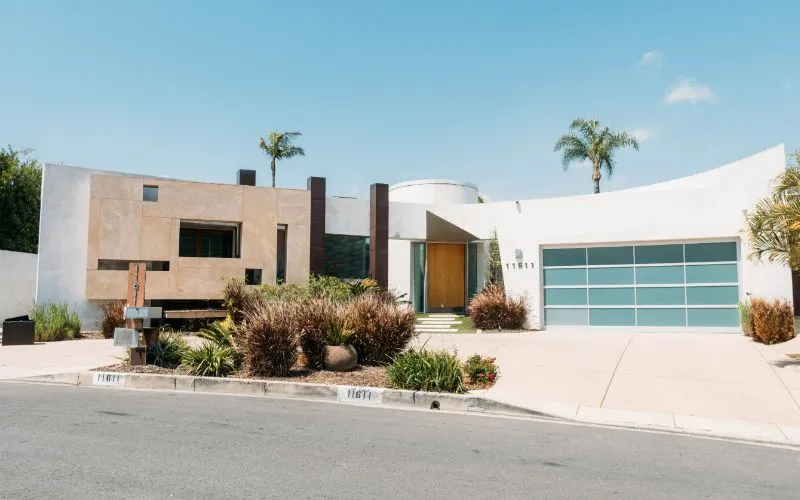Explore leading gaming addiction treatment centers and facilities in Los Angeles and nearby areas. Gaming addiction treatment centers provide structured programs to help individuals address compulsive gaming, develop healthier habits, and restore balance between screen time and real-life activities. With evidence-based therapies, counseling, and support groups, these centers empower individuals to rebuild personal and social connections for lasting recovery. Find the best gaming addiction treatment centers dedicated to helping individuals achieve healthier lifestyles and stronger relationships.
Ads
More Info
Advertisement Disclosure
Our website is funded by advertisers who pay for prominently labeled placements.
Read More28 Rehab Centers were found
Filters
Locations
- Los Angeles(+98)
- Culver City(+14)
- Westlake Village(+13)
- Woodland Hills(+11)
- Beverly Hills(+10)
- Santa Monica(+9)
- Sherman Oaks(+7)
- West Hollywood(+6)
- Malibu(+5)
- Chatsworth(+5)
- Pasadena(+5)
- Encino(+5)
- Redondo Beach(+4)
- Lancaster(+4)
- Reseda(+4)
- Studio City(+4)
- Northridge(+3)
- San Mateo(+3)
- Lynwood(+3)
- Vernon(+3)
- Van Nuys(+3)
- Tarzana(+3)
- North Hollywood(+3)
- Glendale(+3)
- Gardena(+3)
- Riverside(+3)
- Granada Hills(+2)
- Shadow Hills(+2)
- Venice(+2)
- Orange County(+2)
- Pomona(+2)
- West Hills(+2)
- Valley Village(+2)
- Burbank(+2)
- Brentwood(+2)
- Long Beach(+2)
- Sun Valley(+1)
- Torrance(+1)
- San Jacinto(+1)
- San Pedro(+1)
- Upland(+1)
- Whittier(+1)
- Toluca Lake(+1)
- Thousand Oaks(+1)
- Simi Valley(+1)
- Mission Viejo(+1)
- Acton(+1)
- Beaumont(+1)
- Wilmington(+1)
- Panorama City(+1)
- Anaheim(+1)
- Laguna Hills(+1)
- Inglewood(+1)
- Alhambra(+1)
- Rosemead(+1)
- Maywood(+1)
- Manhattan Beach(+1)
- Monterey Park(+1)
- Claremont(+1)
- Covina(+1)
- La Puente(+1)
- Pico Rivera(+1)
- San Fernando(+1)
- Azusa(+1)
- Santa Fe Springs(+1)
- Glendora(+1)
- Agoura Hills(+1)
- El Segundo(+1)
- Duarte(+0)
- Sunland(+0)
- Downey(+0)
- Cudahy(+0)
- El Monte(+0)
- Compton(+0)
- Hermosa Beach(+0)
- Cerritos(+0)
- Calabasas(+0)
- Bellflower(+0)
- Bell Gardens(+0)
- Avalon(+0)
- Arcadia(+0)
- Altadena(+0)
- Paramount(+0)
- South El Monte(+0)
- Walnut(+0)
- West Covina(+0)
- Santa Clarita(+0)
- San Gabriel(+0)
- San Dimas(+0)
- Rolling Hills(+0)
- Orange(+0)
- Hawaiian Gardens(+0)
- Palmdale(+0)
- Norwalk(+0)
- Montebello(+0)
- Lakewood(+0)
- South Pasadena(+0)
- Carson(+0)
- Hawthorne(+0)
Conditions
- Drug(+278)
- Alcohol(+219)
- Mental Health(+195)
- Opioid(+193)
- Cocaine(+184)
- Trauma(+180)
- Methamphetamine(+177)
- Benzodiazepines(+174)
- Heroin(+173)
- Prescription Drugs(+159)
- Depression(+152)
- Anxiety(+149)
- Xanax(+145)
- Synthetic Drugs(+138)
- PTSD(+133)
- Adderall(+131)
- Marijuana(+112)
- Bipolar(+109)
- Ecstasy(+104)
- MDMA(+99)
- Behavioral Health(+93)
- LSD(+93)
- Psychedelics(+91)
- Fentanyl(+71)
- Stress(+71)
- OCD(+69)
- Personality Disorders(+63)
- ADHD(+61)
- Gambling(+38)
- Eating Disorders(+35)
- Anorexia(+34)
- Binge Eating Disorder(+34)
- Bulimia(+33)
- Schizophrenia(+32)
- Gaming(+28)
- Internet Addiction(+27)
- Sex Addiction(+25)
- Burnout(+23)
- Pornography(+22)
- Shopping(+10)
- Narcissism(+8)
Insurances
- BlueCross BlueShield(+129)
- Aetna(+126)
- Anthem(+105)
- Cigna(+105)
- United Healthcare(+66)
- Humana(+63)
- Optum(+53)
- Medicaid(+53)
- MHN(+51)
- Magellan Health(+47)
- Kaiser Permanente(+39)
- Medicare(+31)
- GEHA(+31)
- ComPsych(+29)
- Highmark(+25)
- AmeriHealth(+13)
- Tufts Health(+11)
- Oscar(+9)
- CareFirst(+9)
- Molina Healthcare(+8)
- Intermountain Healthcare(+6)
- Beacon Health Options(+2)
- UMR(+2)
- NYSHIP(+2)
- ILWU(+2)
- Geisinger(+2)
- Empire Life(+2)
- Empire BCBS(+2)
- Bright Health(+2)
- GuideWell(+1)
Therapies
Gaming Addiction Treatment in Los Angeles
Gaming addiction, also known as internet gaming disorder, is a behavioral condition where excessive video game use interferes with daily life, relationships, work, and overall well-being. While gaming can be a fun and social activity, for some individuals, it becomes an uncontrollable habit that leads to emotional, social, and even physical health consequences.
Gaming addiction can affect people of all ages, from children and teenagers to adults. It often coexists with other mental health conditions, such as anxiety, depression, ADHD, or social anxiety disorder.
Los Angeles offers specialized gaming addiction treatment programs that help individuals regain balance, develop healthier habits, and address underlying emotional triggers contributing to compulsive gaming.
Understanding Gaming Addiction
Unlike casual or recreational gaming, gaming addiction is characterized by compulsive play, loss of control, and significant disruption to daily responsibilities. Some of the key signs of gaming addiction include:
- Spending excessive time gaming, often at the expense of school, work, or social interactions
- Feeling irritable, anxious, or restless when unable to play
- Neglecting sleep, hygiene, or nutrition due to prolonged gaming sessions
- Losing interest in activities that were once enjoyable
- Lying about gaming habits to family or friends
- Using gaming as an escape from stress, anxiety, or personal problems
- Failing attempts to cut down or stop gaming
Over time, compulsive gaming rewires the brain’s reward system, making it harder to find pleasure in everyday activities. This can lead to social withdrawal, poor academic or job performance, and emotional instability.
When Gaming Addiction Treatment is Necessary
Not everyone who plays video games excessively has an addiction, but treatment may be needed if:
- Gaming is interfering with work, school, or relationships
- Attempts to reduce gaming have been unsuccessful
- There is an emotional dependence on gaming as a coping mechanism
- Physical health is deteriorating due to poor sleep, nutrition, or lack of movement
- Gaming leads to aggressive behavior, mood swings, or isolation
Early intervention is key to preventing long-term emotional and social consequences of gaming addiction.
Effective Gaming Addiction Treatment Approaches
Gaming addiction treatment focuses on behavioral modification, emotional regulation, and finding alternative sources of fulfillment. Some of the most effective treatment methods include:
Cognitive behavioral therapy helps individuals identify unhealthy gaming patterns, develop impulse control, and replace gaming with healthier activities.
Mindfulness-based therapy teaches individuals to manage cravings, control emotions, and focus on real-world experiences rather than digital stimulation.
Family therapy is often necessary, especially for teenagers or young adults struggling with gaming addiction. Parents and family members learn how to set healthy boundaries, improve communication, and support recovery.
Digital detox programs provide structured breaks from gaming to reset the brain’s reward system. Many treatment centers offer supervised detox periods to help individuals regain control over their habits.
Social skills training helps individuals rebuild real-world connections and engage in social activities outside of gaming. Many individuals with gaming addiction struggle with face-to-face interactions, and therapy helps them develop confidence in offline communication.
For severe cases, residential gaming addiction treatment programs offer intensive therapy, lifestyle coaching, and structured activities to replace excessive gaming.
Identifying and Managing Triggers
Many individuals use gaming as an escape from stress, anxiety, depression, or loneliness. Identifying and addressing these underlying emotional triggers is crucial for long-term recovery.
Common gaming addiction triggers include:
- Social isolation or difficulty making friends in real life
- High levels of stress or pressure from school or work
- Low self-esteem or lack of confidence in real-world activities
- Escaping from family conflicts, trauma, or emotional pain
- Dopamine-driven addiction to game rewards, achievements, or virtual progression
Treatment helps individuals develop healthier coping mechanisms, such as exercise, meditation, social engagement, or creative hobbies.
The Role of Healthy Technology Use in Recovery
Since technology is an essential part of modern life, treatment focuses on moderating gaming use rather than eliminating it entirely. Some key strategies for balanced gaming include:
- Setting time limits on gaming sessions
- Prioritizing responsibilities before gaming
- Engaging in offline hobbies and physical activities
- Using parental controls or screen time monitoring tools
- Creating screen-free zones at home for relaxation and social interaction
Learning to enjoy gaming in moderation allows individuals to maintain a healthy relationship with technology without it dominating their lives.
Rebuilding Relationships and Social Skills
One of the biggest challenges of gaming addiction is reconnecting with the real world. Many individuals who struggle with excessive gaming experience social withdrawal, difficulty making friends, and low self-confidence in face-to-face interactions.
Therapy helps individuals:
- Improve communication skills and real-world social interactions
- Develop confidence in offline activities and hobbies
- Rebuild relationships with family and friends
- Learn to enjoy real-world achievements rather than digital rewards
For younger individuals, structured social programs such as team sports, outdoor activities, or volunteer work can help reintegrate them into healthy, engaging environments.
Long-Term Recovery and Preventing Relapse
Gaming addiction recovery is an ongoing process, and many individuals benefit from continued therapy, accountability, and structured routines to prevent relapse.
Some key relapse prevention strategies include:
- Setting clear gaming boundaries and sticking to them
- Continuing therapy or attending support groups for accountability
- Developing a healthy daily routine that includes exercise, hobbies, and social interaction
- Using self-monitoring techniques to track gaming habits and avoid excessive use
- Practicing mindfulness and emotional regulation techniques to reduce the urge to game excessively
Over time, individuals who recover from gaming addiction often find greater fulfillment, improved relationships, and a healthier balance between digital and real-world experiences.
Finding Gaming Addiction Treatment in Los Angeles
Los Angeles offers a range of treatment options for gaming addiction, including:
- Outpatient therapy for individuals looking to moderate gaming habits
- Residential gaming addiction programs for those needing intensive recovery support
- Family therapy programs for parents and loved ones seeking guidance
- Support groups where individuals can connect with others in recovery
Seeking help for gaming addiction is not about eliminating gaming entirely—it’s about regaining control, creating balance, and prioritizing real-world experiences. Many treatment centers in Los Angeles offer free consultations to help individuals find the best recovery path.
Frequently Asked Questions
Is gaming addiction a real disorder?
Can gaming addiction be treated without quitting games completely?
How long does gaming addiction treatment take?
Are there gaming addiction programs for teenagers in Los Angeles?
Ads
More Info
Advertisement Disclosure
Our website is funded by advertisers who pay for prominently labeled placements.
Read More













































